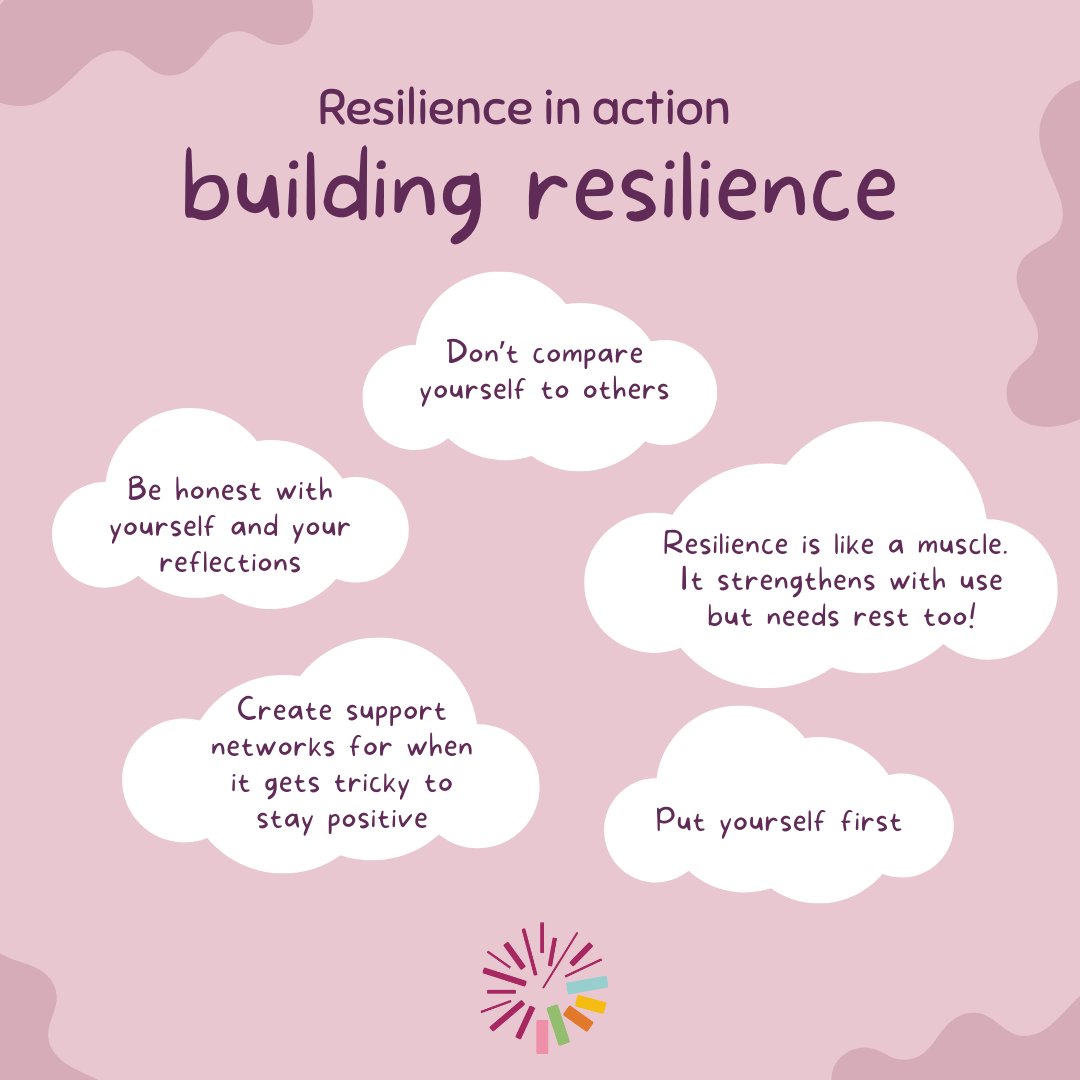What is resilience?
Listen to this article on the go.
Resilience. It’s a word we hear a lot, but what does it really mean? How do you build resilience? How do you cope with stress? Why is being resilient such an important thing?
Everyone can benefit from being resilient and we can all develop our resilience in different ways. So, read on to find out more about what resilience means to you, to the early education and care sector, and how you can continue to build up your own resilience.
What is resilience?
Resilience refers to our ‘bounce-back-ability’, the way we adapt ourselves when challenges arise, dealing with them ‘in-the-moment’, but also refers to how we move on. Being resilient allows us to recover from perceived failures, taking the positive learning opportunities forward to continue to grow. It is a unique skill ability to have and is highly transferrable to all aspects of life, whether to face a personal setback, a ‘hiccup’ at work or a challenge elsewhere.
Whilst this general definition gives us a good idea of what it means to be resilient, our own outlook on it is as unique as we are. It’s important to remember that everyone’s understanding of what resilience means – what is challenging and what is not - is subjective to their individual background, circumstances and beliefs.
Why be resilient?
What we consider to be a ‘challenge’ is also very subjective to each person – we all feel different things. For some, being observed in a classroom is a personal nightmare whilst for others? It’s showtime!
And, whilst our struggles won’t all look the same, we all experience our very own bespoke thunderstorms, dark clouds that loom above us and us alone. Negative experiences, regardless of what they involve, are likely to have negative influences on our feelings towards a situation or ourselves. We can’t always avoid stressful times but being aware and prepared can help to reduce its impact, both in the moment and long afterwards.
That’s why building our sense of resilience – our ability to adapt to challenges and recover from their impact – is so important to maintaining good wellbeing, positive environments and healthy relationships, both personally and professionally.
Resilience in action: tips to get you started
Resilience is something that grows with us, through the experiences we have and the ways we learn to ride the next wave, rather than getting swept out under it. It can also be referred to as how we handle stress or bounce back from challenges.

Here are a few ways you can begin to develop your resilience to give yourself a good start:
Be honest with yourself
The only way to acknowledge what is bothering you is to be honest about it, giving yourself the chance to think critically and openly about the challenges you are facing. Chances are that the ‘issue’ requiring your resilience is only a fraction of the wider situation. It’s important to be able to identify the specific issue to narrow your focus onto what needs overcoming. Getting a better idea of this will also help you to predict similar challenges in the future and allow you to respond even better next time and become more resilient based on your own experiences.
Give yourself time
It can feel impossible, during busy times, to give yourself room to breathe, let alone take some time for yourself to relieve the webs of worry inside. Our resilience is like a muscle – it gets stronger with every exercise but, like any other muscle, needs rest and recuperation time too. Resilience is not about ‘blocking out’ emotions to ‘power on’ but relies on our ability to acknowledge and work through our feelings and cultivate our confidence in making effective decisions and managing stress.
Do not compare
As we’ve mentioned before, everyone’s experiences are uniquely moulded in our cast of life. Our background paves the foundations for our feelings and responses that, for some, create a more significant barrier to being as resilient as we might want to be. This is something relative, meaning that it is not comparable from one person to another, because we are not replicas that can be compared. By putting yourself at the centre of your focus, your resilience to the first challenge is already underway!
Whilst building resilience does a great deal for our own development, dealing with challenges and reduce stress, it is important to develop strong networks for support for when we need a bit of help to bounce back.






